Continue reading for our analysis...
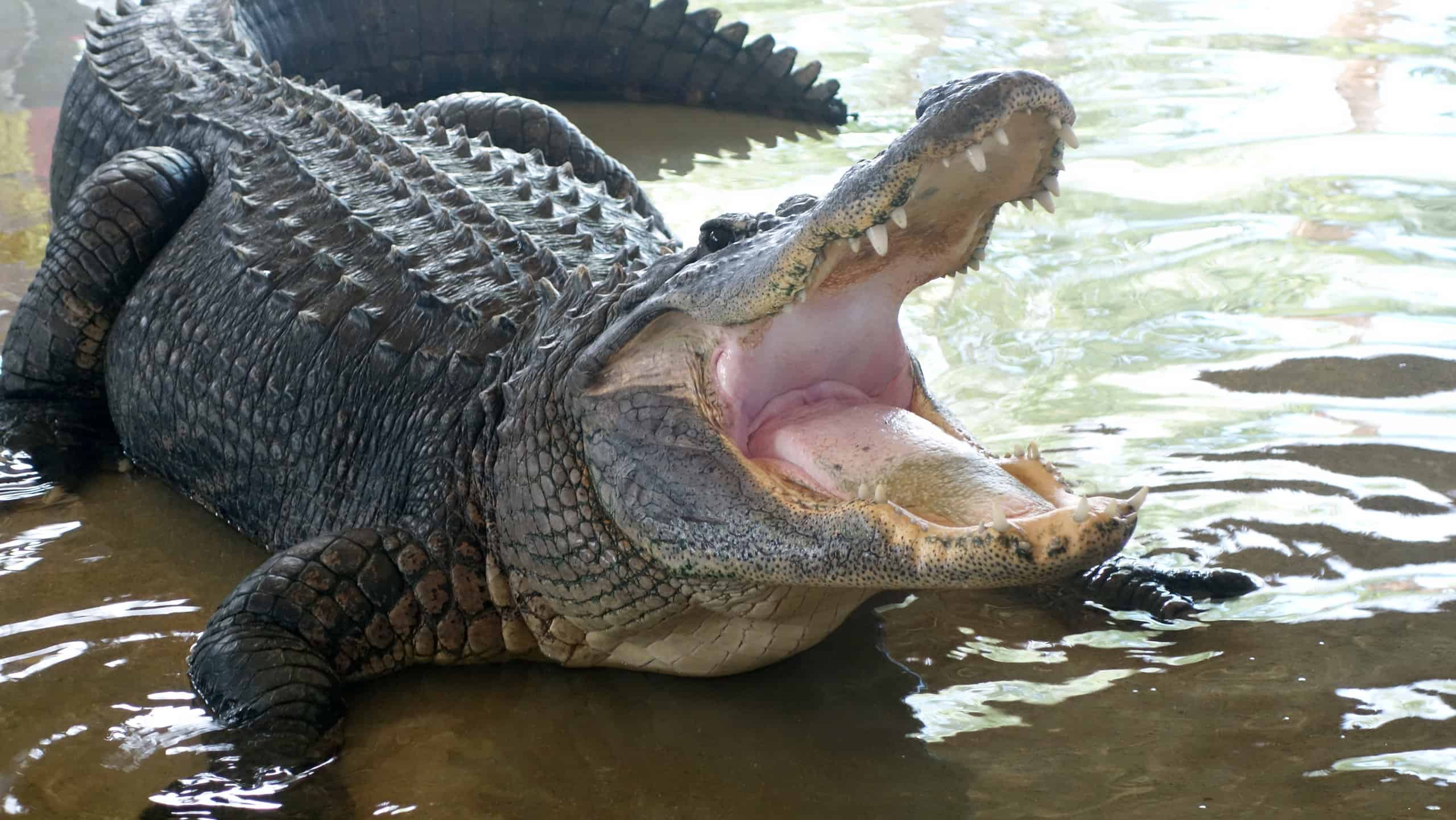
Key Points:
- A young man fishing in the Florida wetlands spots an alligator headed his way.
- The man runs away at first but then moves toward the alligator, which isn’t wise.
- After the face-off, the alligator eventually retreats back into the wetlands.
Fishing is a pastime for many, including those that live in the Sunshine State. A unique fish you can only toss a line for in Florida is tarpon. These animals may reach a length of 8 feet and a weight of 280 pounds.
A 22-year-old man was casting a line in the Florida wetlands and enjoying a nice day by the water. While waiting for something to bite the hook in the water, he was visited by an unexpected local. Thanks to his keen eyesight, this fisherman was able to spot an alligator surfacing as it headed toward shore.
While alligators are normally found in water, it’s not their preferred place to be. It’s not uncommon to find them sunbathing on a grassy knoll or enjoying the shade of a bustling bush.
Because of their inherent fear of people, alligators typically start to flee as soon as they come close to them. Back away carefully if an alligator approaches you from a few yards away. Wild alligators rarely pursue humans, yet they are capable of sprinting up to 35 miles per hour across short distances on land.
Unfortunately for this fisherman, he was part of the small percent that gets chased. The gator quickly gets on land and it appears the angler runs backward away from the apex predator. At one point in the footage, it looks like he takes a fall.
Face-Off for Dominance
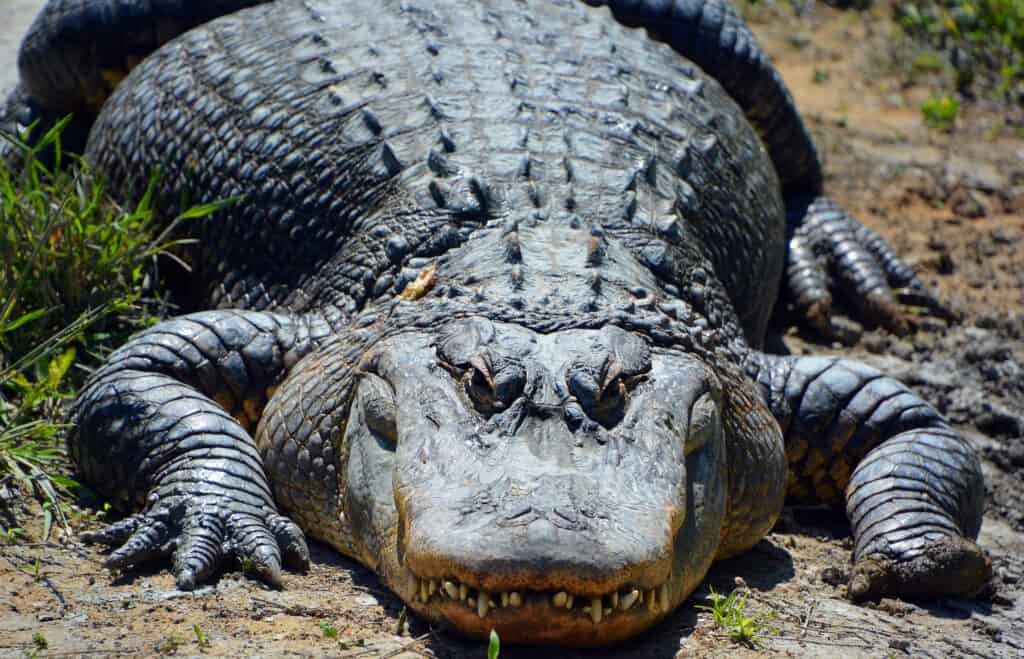
Alligators are afraid of humans, so they will usually avoid them.
©meunierd/Shutterstock.com
The man and beast seem to have a staring contest for a moment. At one point, the fisherman even attempts to walk toward the animal. Many people are taught that you should run in a zig-zag formation when fleeing from a gator.
Whether it was zigzagging or not, the average person could easily outrun an alligator. More significantly, the alligator does not use a long sprint to advance on prey. In the water, the alligator prefers to ambush its victim covertly.
“It’s rare that an alligator will come out of the water and go after a human being,” Ron Magill, a wildlife expert and communications director at Zoo Miami, said on “Good Morning America.” “They usually nest close to the water. If you get near a nest, a female will come after you. Females are very protective.”
The interesting thing about this particular interaction is that neither party gives up at first. The man runs away and then walks back to the animal, as the gator starts walking closer to the human.
Eventually, the threatening alligator turns around and is hidden once again in the watery landscape. For all we know, he could be in the water or waiting in the grass along the walking path. Either way, the man has had enough and calls it a day!
Is This Normal Behavior?
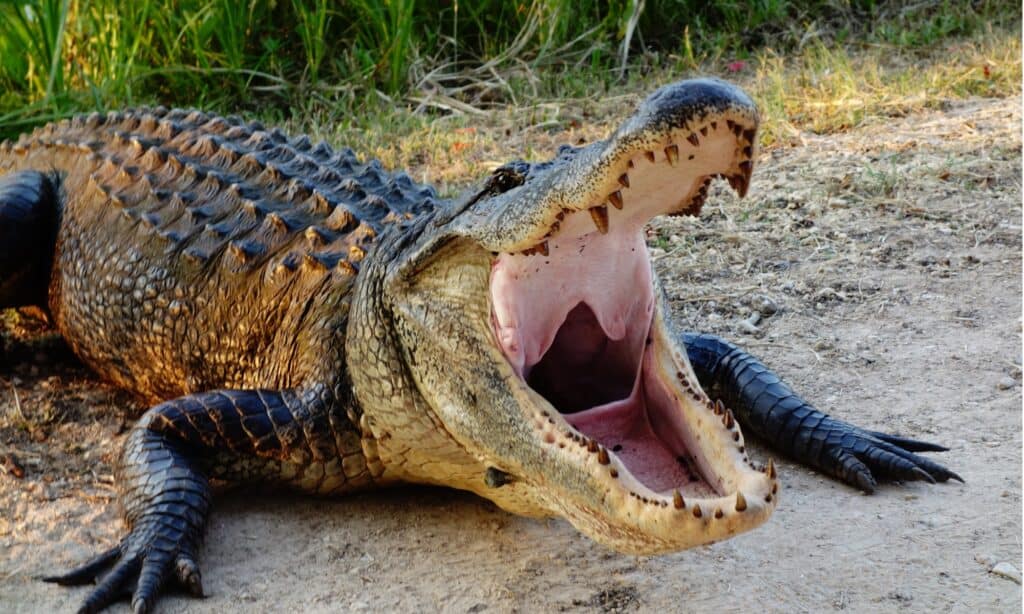
Many alligator bites are due to humans being in the wrong place at the wrong time.
©iStock.com/Alex Pankratov
It is rare for alligators to attack humans on land. According to the Florida Conservation Commission, alligator bites average six a year. Alligators have a natural fear of people, so they will usually flee the presence of humans. Alligators are opportunistic feeders, which means they will prey on what is convenient for them. Many alligator bites are due to humans being in the wrong place at the wrong time. Alligators are more active at dusk and dawn, so it is best for humans and pets to avoid their habitats then. If one does encounter an alligator from several yards away, it is best to back away slowly. If the gator sees you run away as fast as you can in a straight line.
Lifespan: How Long Do Alligators Live?
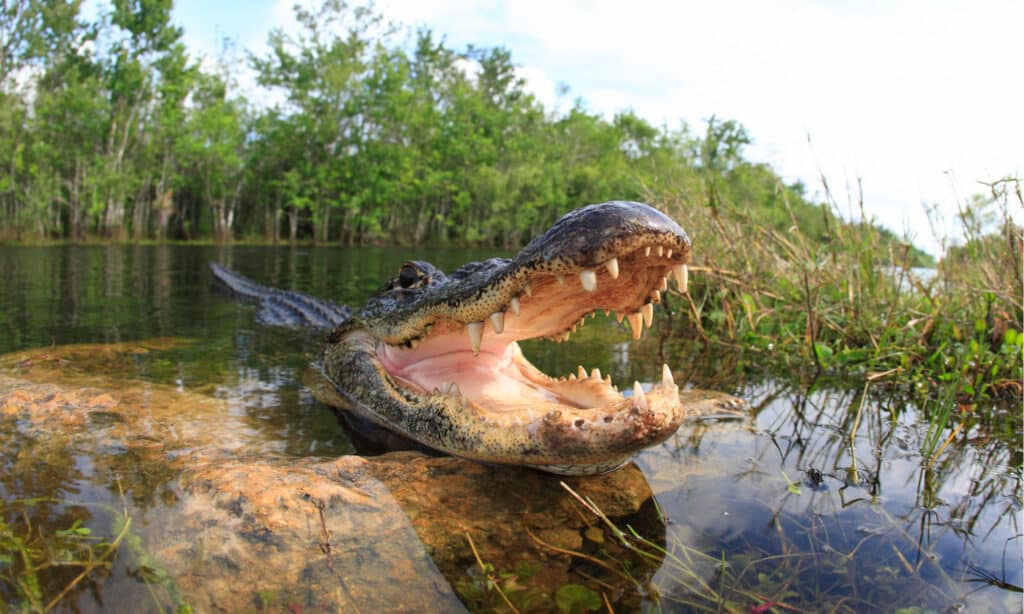
Alligators are commonly found in Florida swamps and wetlands. They are mostly active at dusk and dawn.
©Thierry Eidenweil/Shutterstock.com
Alligators can live about as long as humans. The American alligator in the wild has an average lifespan of 30-50 years. In captivity, they can even live as long as 80 years.
Why Was the Fisherman Trying to Catch a Tarpon?
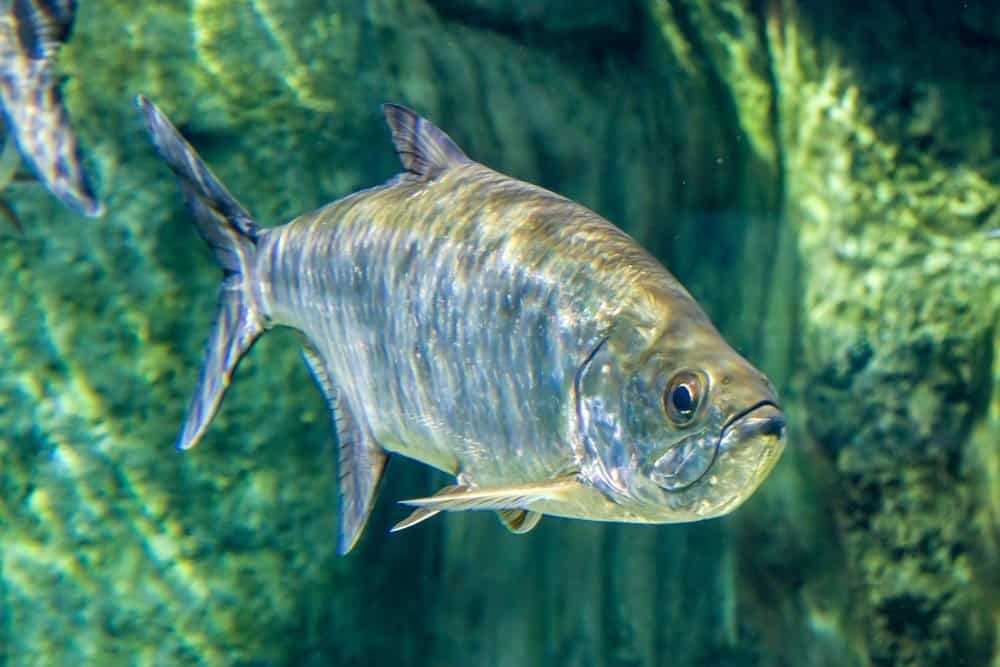
Tarpon are challenging to catch and can live to be 50 years old.
©Danny Ye/Shutterstock.com
Tarpons are highly prized game fish because of their strength, stamina, and fighting ability. They really put up a fight! They have a unique ability to gulp air while they are struggling above the surface during their fight, which doesn’t help matters for the fisherman. These fish are so hard to catch that they can live to be over 50 years old. Tarpons have had a long time to learn how not to be caught — fossil records show that tarpons have been around since prehistoric times.
Thank you for reading! Have some feedback for us? Contact the AZ Animals editorial team.






